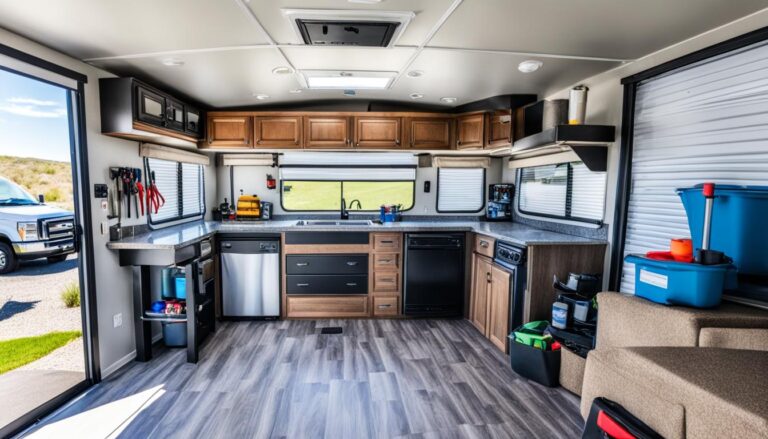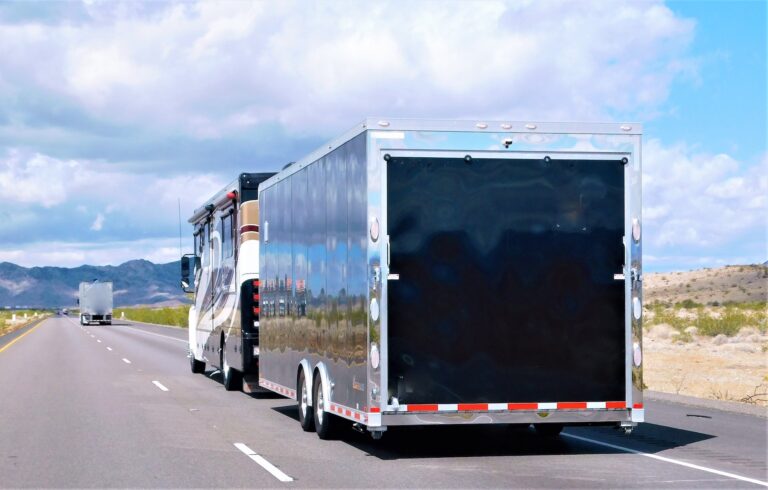If you’re considering buying an RV, one of the first decisions you’ll face is whether to choose a diesel or gas model. Each has its own set of advantages and disadvantages, and the right choice largely depends on your specific needs, budget, and preferences. To help you make an informed decision, this comprehensive guide will explore the pros and cons of diesel vs. gas RVs.
Understanding Diesel and Gas RVs
Let’s begin by understanding the key differences between diesel and gas RVs:
- Diesel RVs are usually equipped with a diesel engine in the rear (diesel pusher), providing more power and torque, making them suitable for larger, Class A motorhomes.
- Gas RVs, on the other hand, are powered by gasoline and typically have the engine in the front. They are commonly found in smaller Class C and Class B motorhomes, but can also power some smaller Class A motorhomes.
Pros of Diesel RVs
Diesel RVs offer several distinct advantages:
- Power and Performance: Diesel engines provide more torque, making them excellent for towing and climbing steep grades, even with larger rigs.
- Fuel Efficiency: Diesel RVs often have better fuel economy than their gas counterparts, which can be a significant advantage for long-distance travelers.
- Durability and Lifespan: Diesel engines are built robustly and have a longer lifespan, often outlasting gas engines by several thousand miles.
- Maintenance: Although diesel RVs require maintenance less frequently than gas RVs, when they do, it tends to be more expensive.
- Resale Value: Diesel RVs tend to hold their value better than gas RVs, making them a good choice for those who might want to sell or trade in the future.
Cons of Diesel RVs
Despite these advantages, there are also some drawbacks to diesel RVs:
- Higher Initial Cost: Diesel RVs are typically more expensive upfront than gas RVs. This can be a significant barrier for those on a tight budget.
- Maintenance Cost: While less frequent, maintenance and repairs on diesel RVs tend to be more expensive than on gas RVs.
- Noise: While modern diesel RVs are quieter than their older counterparts, they can still be louder than gas RVs, especially during acceleration.
- Fuel Availability: Although widely available, in some remote areas, diesel fuel can be harder to find than gasoline.
Pros of Gas RVs
Gas RVs also come with a set of advantages:
- Lower Initial Cost: Gas RVs are typically less expensive upfront, making them more accessible for first-time buyers or those on a budget.
- Maintenance Cost: Routine maintenance and repairs on gas RVs are generally less expensive than on diesel RVs.
- Quiet Operation: Gas RVs tend to run quieter than diesel RVs, which can make for a more comfortable driving experience.
- Fuel Availability: Gasoline is readily available across the country, so you won’t have to worry about finding a fuel station.
Cons of Gas RVs
However, gas RVs have their own drawbacks:
- Lower Fuel Efficiency: Gas RVs typically get fewer miles per gallon compared to diesel RVs, which can add up on long journeys.
- Lower Towing Capacity: Gas engines produce less torque, which can limit your RV’s towing capacity and performance on steep grades.
- Shorter Lifespan: Gas engines tend not to last as long as diesel engines, meaning they may need to be replaced sooner.
- Resale Value: Gas RVs tend to depreciate faster than diesel RVs, so you might not get as much back when you decide to sell or trade.
Making Your Decision: Diesel vs. Gas RVs
When deciding between a diesel or gas RV, consider the following:
- Budget: Determine your initial budget and your budget for ongoing costs like fuel and maintenance. Diesel RVs generally have a higher upfront cost but may save you money in the long run with better fuel efficiency and longer lifespan.
- Travel Plans: If you plan on long-distance travel or frequently climbing steep grades, a diesel RV’s superior performance might be worth the extra cost. If you plan on shorter trips or weekend getaways, a gas RV might serve you well.
- Noise Tolerance: Consider your tolerance for engine noise. If a quieter ride is important to you, you might lean toward a gas RV.
- Resale Considerations: If you’re thinking about selling or trading your RV in the future, a diesel RV might hold its value better.
Conclusion
In the end, whether you should choose a diesel or gas RV depends on your individual needs, preferences, and budget. Both types of RVs have their own set of pros and cons, and there is no one-size-fits-all answer. It’s essential to consider all factors and maybe even test drive a few models of each before# The Pros and Cons of Diesel vs. Gas RVs: What New Buyers Need to Know
For those with a deep-seated wanderlust and a love for the open road, nothing beats the freedom of owning a recreational vehicle (RV). However, when making your first RV purchase, you’ll encounter a critical choice: should you opt for a diesel or gasoline (gas) model? This decision can significantly impact your RVing experience, influencing everything from initial costs to long-term maintenance requirements.






